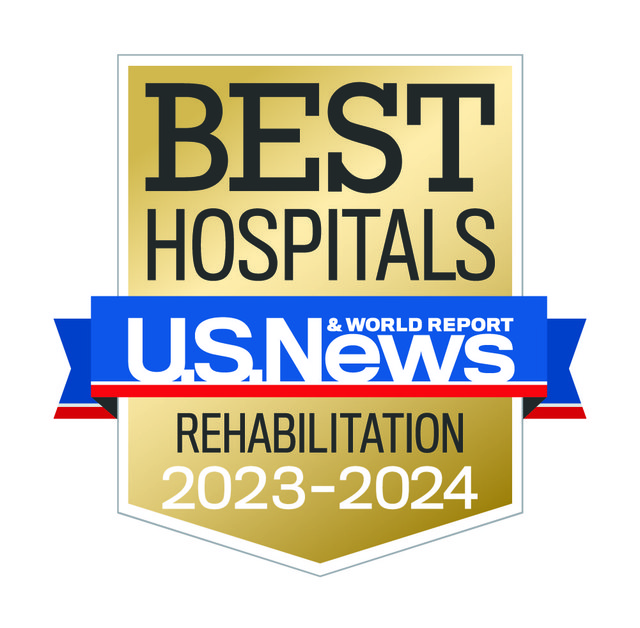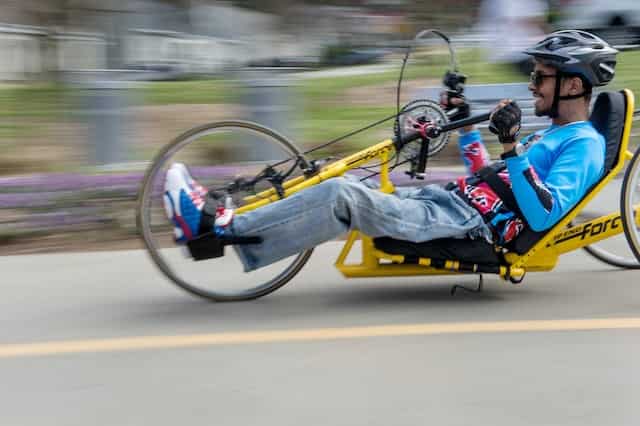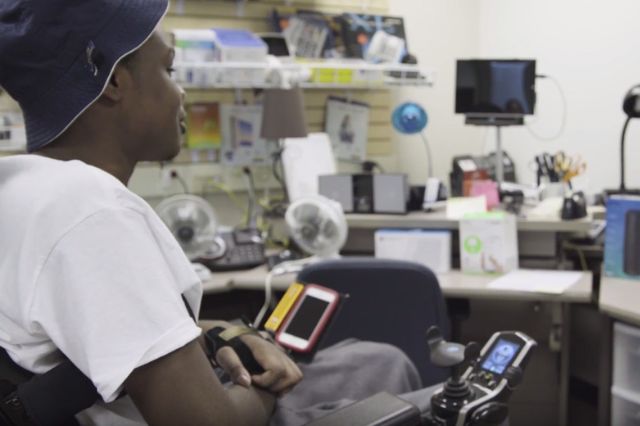Access Technology Lab at Shepherd Center
Personalized assistive device and technology solutions for living, working, and playing after a traumatic injury or neurological condition
From the moment patients arrive at Shepherd Center until their return to the community, assistive technology therapy is an integral part of the rehabilitation journey. This therapeutic approach helps foster independence in daily activities like switching on a light, calling for help, or accessing a mobile phone, tablet, or computer.
Beginning with a comprehensive evaluation, the Access Technology Lab at Shepherd Center prioritizes building a deep understanding of each patient. This includes the unique aspects of their injury, day-to-day activities, and individual preferences. Collaboratively, therapists and patients explore innovative solutions, selecting the most suitable devices to meet each distinct need while unlocking new opportunities post-injury.
How can assistive technology support individuals with disabilities?
Assistive technology is designed to address various aspects of an individual’s life, including physical functioning, adaptation to daily living, mobility, communication, and overall well-being. Customized assistive technology solutions empower individuals with disabilities to reach their full potential following a traumatic injury or neurological disease. Some of the ways assistive technology can support individuals in daily life include:
- Enhance independence to perform daily tasks like device access, drinking, and communicating.
- Streamline the transition back to school by offering resources for reading, writing, and note-taking.
- Facilitate a return to the workforce by assisting with tasks like composing emails, establishing adaptable workstations, and accessing digital documents.
- Remove barriers to enjoy recreational and leisure activities such as listening to music or playing video games.
Comprehensive Assistive Technology Services We Offer
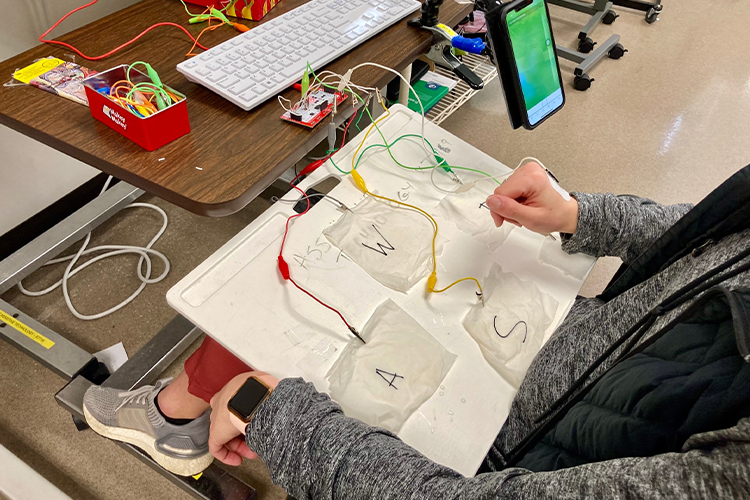
Specialized Assessments and Evaluations
Our lab is equipped with a range of assistive devices and technologies. An occupational therapist conducts an in-depth interview to identify your goals, interests, needs, and physical abilities. These evaluations help identify the most suitable solutions for your unique lifestyle, functional capabilities, and goals.
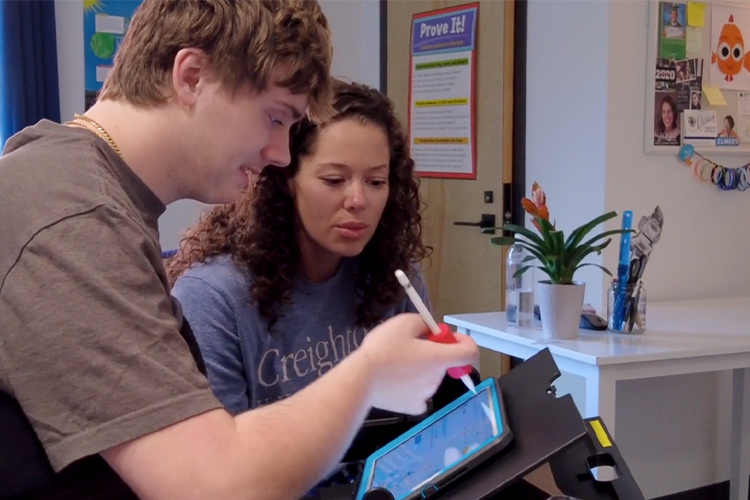
Technology Demonstrations and Trials
We maintain an extensive inventory of switches, environmental control devices, and alternative access methods, allowing you to learn, test, and trial various assistive technologies before purchasing. This hands-on experience allows you to assess the compatibility of existing technology with your unique needs and preferences or to collaborate on creating something new.
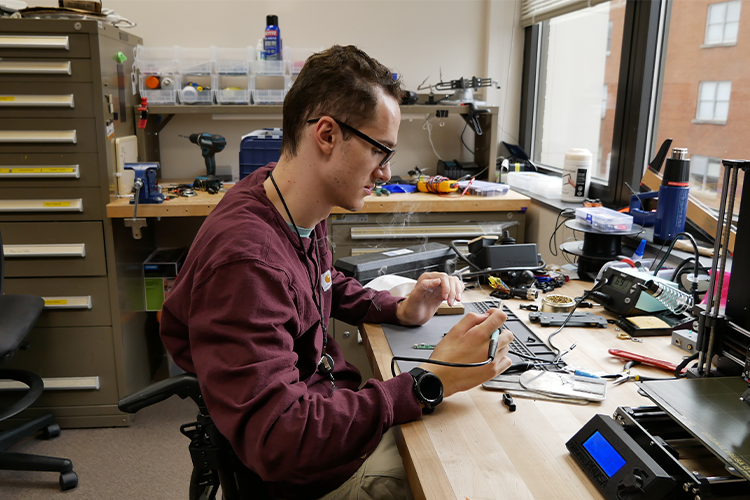
Procurement of Technology
Our lab specializes in adapting hardware, software, electronics, and appliances to meet your needs and ensure a perfect fit. We have established relationships with assistive technology vendors and manufacturers and can also assist in navigating the complex world of funding sources, including loans, grants, or other financial assistance programs.
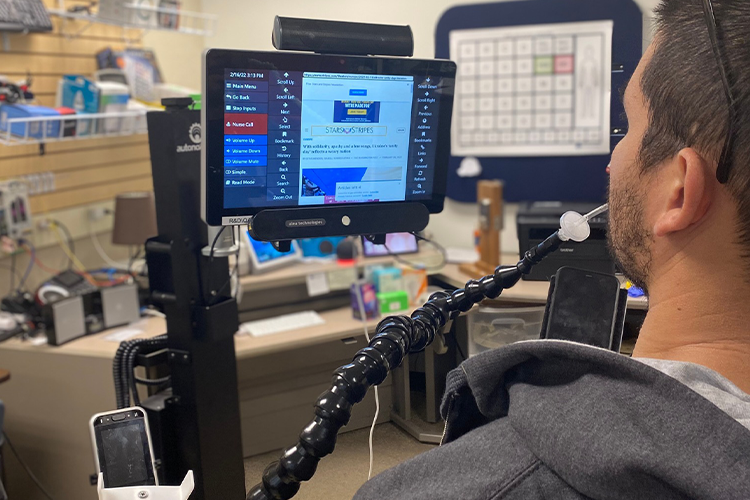
Training and Support
After technology procurement, our lab provides training and support to ensure the systems and technology can be used effectively in daily life. Specialists guide setup, operation, and troubleshooting. Follow-up services monitor the effectiveness of the technology and make any necessary adjustments or replacements as you progress through rehabilitation.
Types of Assistive Technologies We Evaluate
Adaptive gaming technologies are designed to make video games and gaming platforms more accessible to individuals with diverse abilities. This includes customizable features like adaptive controllers, joysticks, and button configurations to cater to gamers with mobility, visual, or auditory impairments. These adaptations ensure that everyone can enjoy the benefits of recreational and social gaming.
Alternative device access methods for phones, tablets, computers, and alternative/augmentative communication devices. This may include an introduction to built-in accessibility features, adaptive styluses, high-tech alternative mice, voice recognition software, and touch-screen alternatives like eye-tracking devices and switches.
Electronic Aids to Daily Living include devices and solutions to control appliances or tools in the environment, such as adjusting room temperature, turning on/off lights, operating appliances, or opening doors. These systems often incorporate voice commands, switches, or smartphone apps, providing individuals with greater autonomy and control over their living spaces.
Mounting systems are used to secure devices and assistive tools in a way that suits the individual’s specific needs. For instance, mounting solutions can secure cell phones, tablets, or computer monitors to wheelchairs, desks, or other surfaces. This ensures the devices remain accessible and within reach for those with mobility or positioning challenges.
A Team Approach to Your Care: Assistive Technology Specialists
At the Access Technology Lab, we understand the complexities of traumatic injuries and neurological conditions. That’s why we take a multidisciplinary approach, collaborating closely with a team of occupational therapists, rehabilitation engineers, and assistive technology professionals who work together to provide the highest standard of care. Together, we combine our expertise and experience to help you achieve the highest level of independence possible.
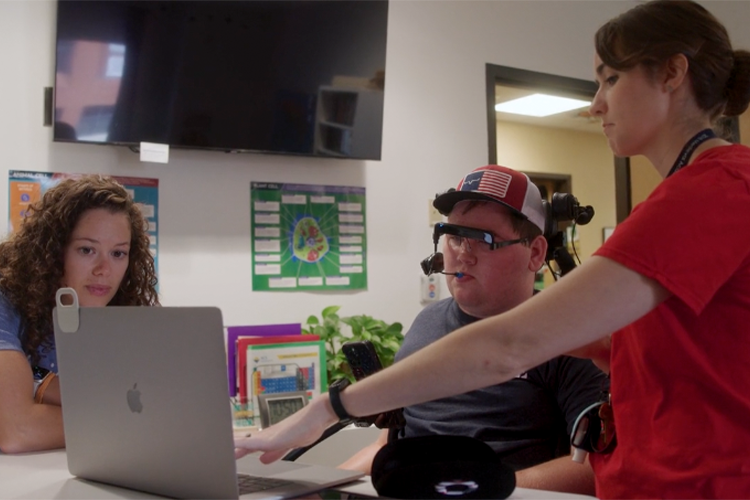
Referrals to the Access Technology Lab
Shepherd Center provides assistive technology therapy as an integral component of its continuum of care, aimed at fostering greater independence for individuals with disabilities or injuries.
At this time, this therapy is only available to Shepherd Center's current inpatients. For further information, we encourage you to contact your dedicated care team or case manager.
If you're interested in discovering more about state-funded assistive technology programs, we recommend exploring the resources provided by the National Assistive Technology Act Technical Assistance and Training Center.
Frequently Asked Questions
Questions about our Access Technology Lab? Explore our Frequently Asked Questions to learn more about the lab, purchasing equipment, resources, and more.
